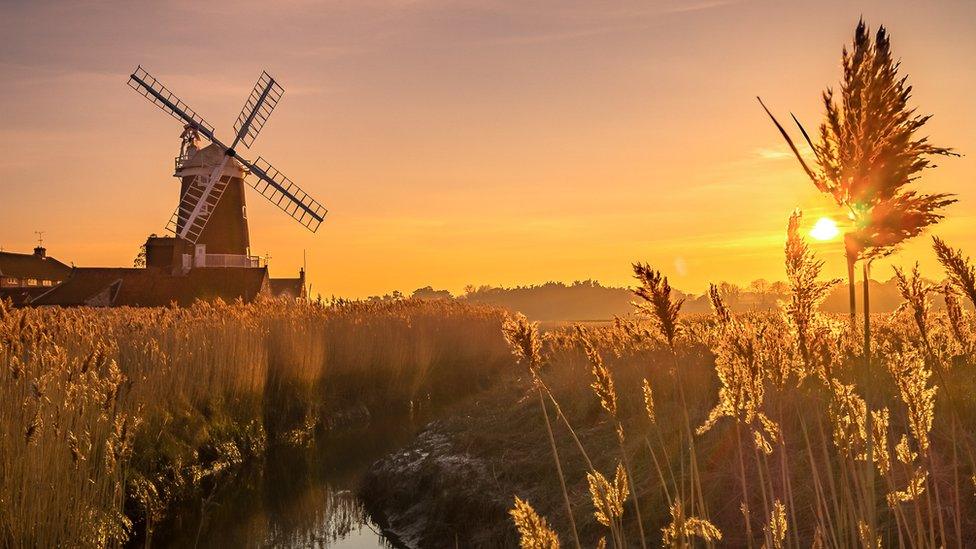Knot numbers hit record level at RSPB Snettisham
- Published
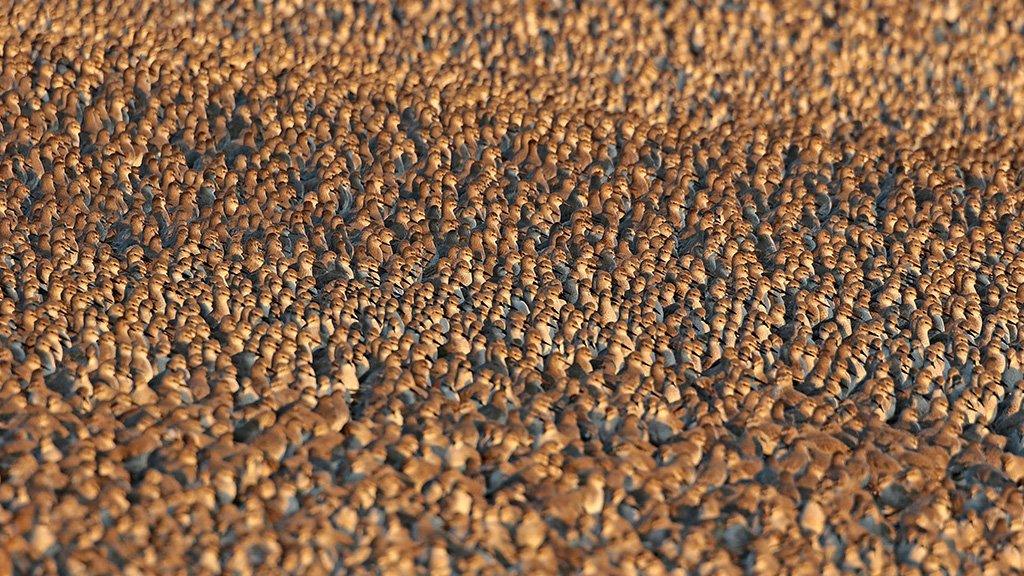
"If I had a pound for every 'wow' and 'oh my god' I'd heard over the years... then I'd be a very rich man," said photographer Les Bunyan
The number of knot feeding and flying to create swirling dark clouds of birds on the Norfolk coast has reached record numbers.
For the first time about 140,000 have been seen on the RSPB reserve at Snettisham, external. The previous site record was 120,000 in the winter of 1990-91, the organisation said.
To see them is "just an extraordinary experience", said photographer Les Bunyan, who volunteers at the reserve on The Wash estuary.
"It's not just what you're looking at, it's also the sound you have to appreciate. When you get tens of thousands of birds flying around you - they make a lot of noise."
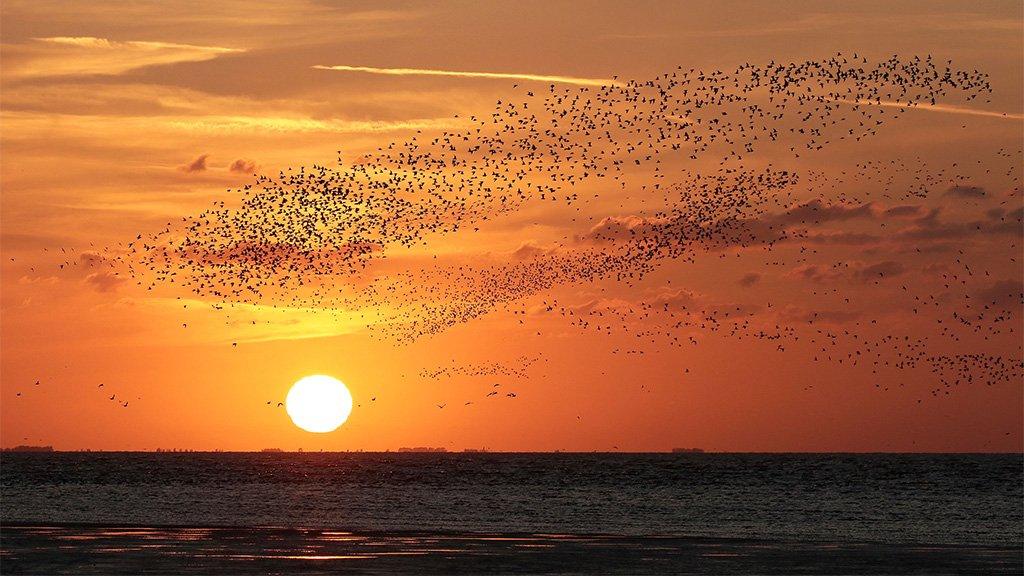
"I had a whole series of these types of photographs of the knot, not making particularly fancy shapes but just being silhouetted against this fantastic orange sky"
The birds, which are about 25cm (10in) in length, undertake one of the longest migrations of any animal from their Arctic breeding grounds to the coasts and estuaries of Europe, Africa and Australia where they spend the winter feasting on invertebrates.
Mr Bunyan, 64, has been photographing wildlife for more than 20 years, external and admits the knot have become something of an obsession.
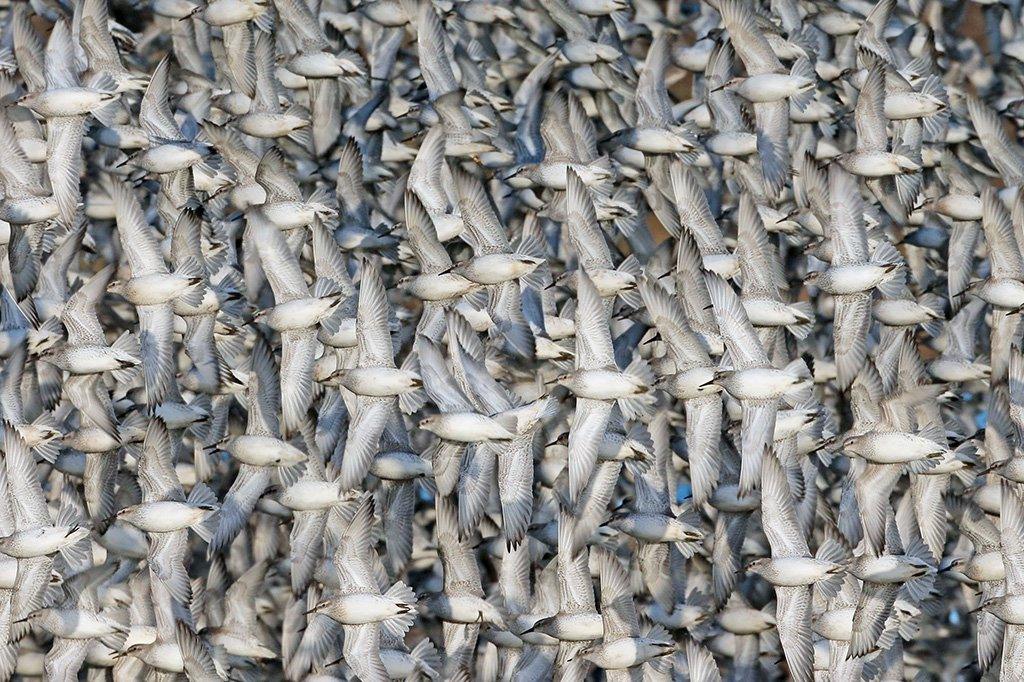
"I met some professional filmmakers up there, I think for the BBC, and they've seen sort of spectacles all over the world and they were just blown away - they said they've never seen anything like it before"
"I think what gets me when the birds lift into the air - is how small I feel," he said.
"I really do think this sort of thing should be on everybody's bucket list - just make the attempt to get out there and look at this type of thing."
Flocks of knot flying over The Wash can be seen from RSPB Snettisham
"The UK has very, very few what I would call natural spectacles and I just absolutely adore and love it to bits. No two days are the same and I think that's what keeps drawing me back to it.
"People can be put off by birdwatching in general and they think that people have got to, you know, have all the latest gear and stuff like that."

"Once the tide starts to come in the knot really don't like to sit in water and they'll fly away and that's when they make these fantastic shapes and patterns"
When the coronavirus lockdown came in in March, time on The Wash played an important role for Mr Bunyan.
"Being outdoors is so good for you and your mental health. It's a bit of a catchphrase these days, 'your mental wellbeing', but it certainly helped me."
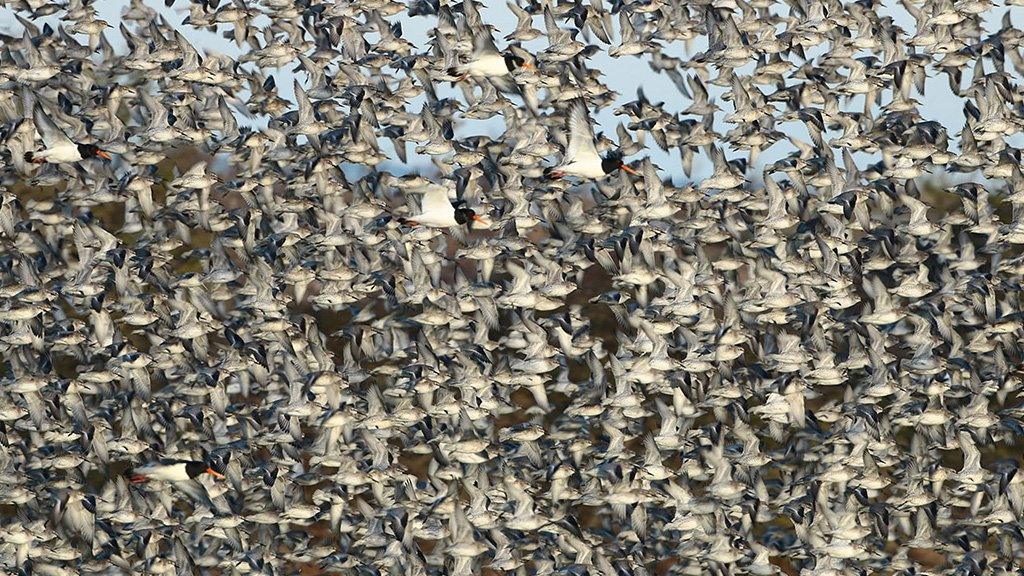
Spot the interlopers - "I took a series of photographs as the birds took off and there's mainly knot but a few oystercatcher just to give you a hint of something different - a flash of black and white and an orange bill"
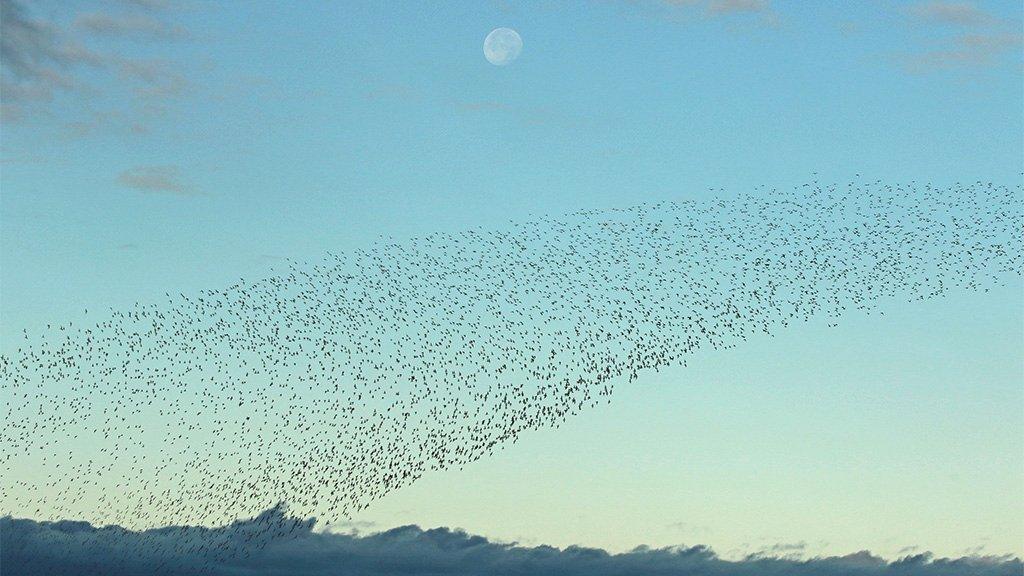
"I think it's so special because it's probably the only place you can witness these birds doing this on a regular basis anywhere in the country. People travel from all over the world to see this spectacle"
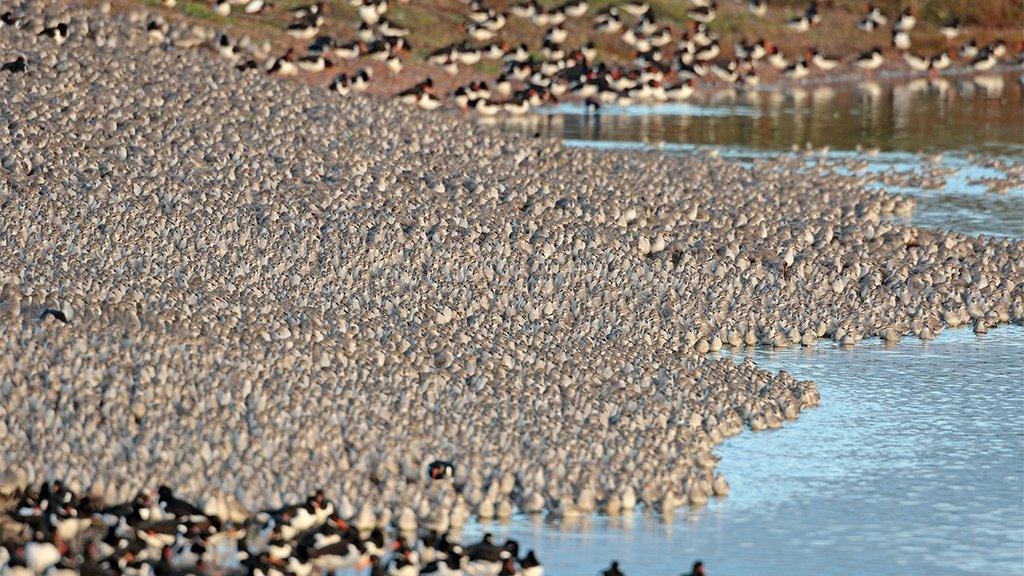
Knot, with oystercatchers in the foreground and background - "The joy and the feeling is a very, very difficult thing to put into words - you see it, you don't quite believe it. For those who only managed to see it once in a lifetime I think it is the thing that they will never forget"
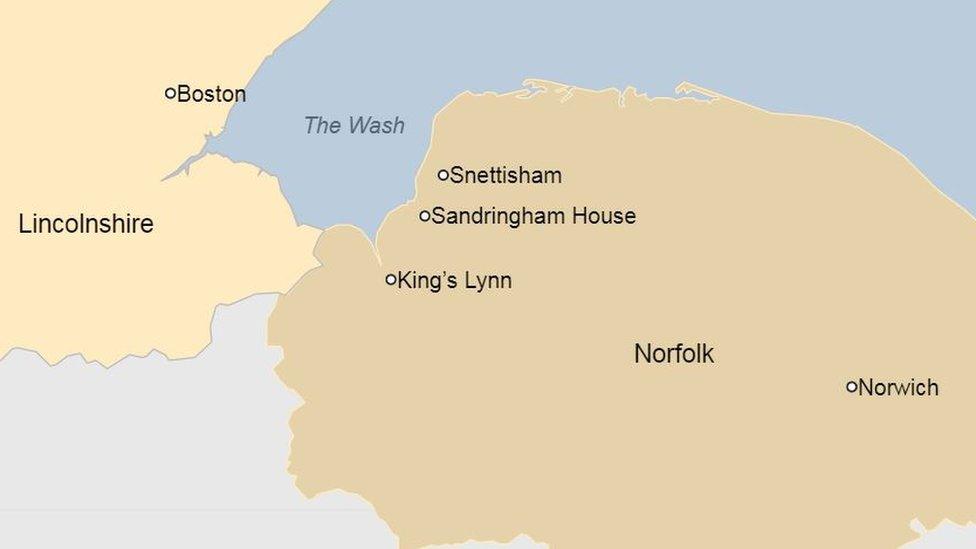
RSPB Snettisham is on the coast north of HM The Queen's Sandringham estate
RSPB site manager Jim Scott said the weekend's record-breaking numbers "could be that birds have come here from other parts of The Wash, or it's purely down to the migration numbers peaking - we won't know for sure for a few days yet".
He added: "It's a showcase for estuaries in the UK. When you come to Snettisham on a big tide and the waders perform in the numbers it just really takes your breath away and shows how important mudflats are to our wildlife."
.

Find BBC News: East of England on Facebook, external, Instagram, external and Twitter, external. If you have a story suggestion email eastofenglandnews@bbc.co.uk
- Published17 October 2020
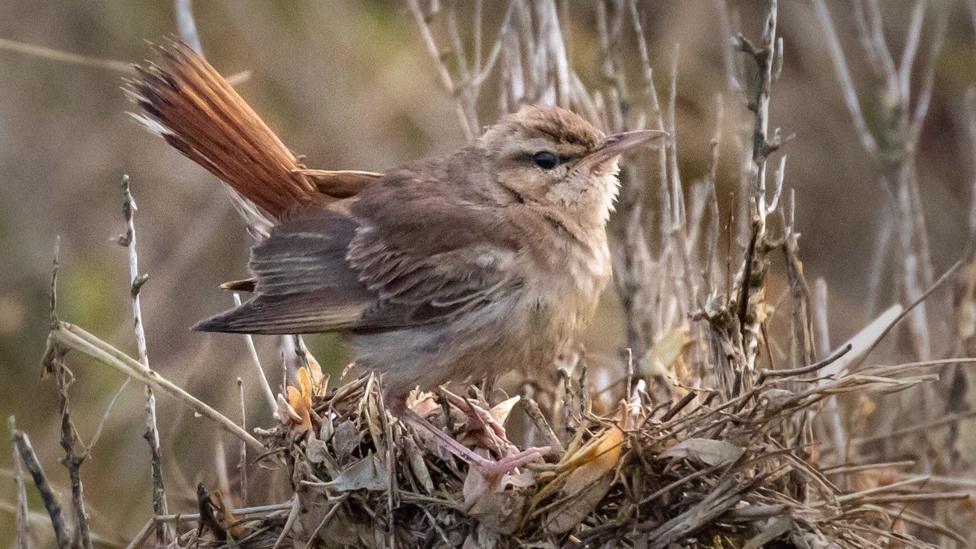
- Published27 September 2020

- Published13 September 2020
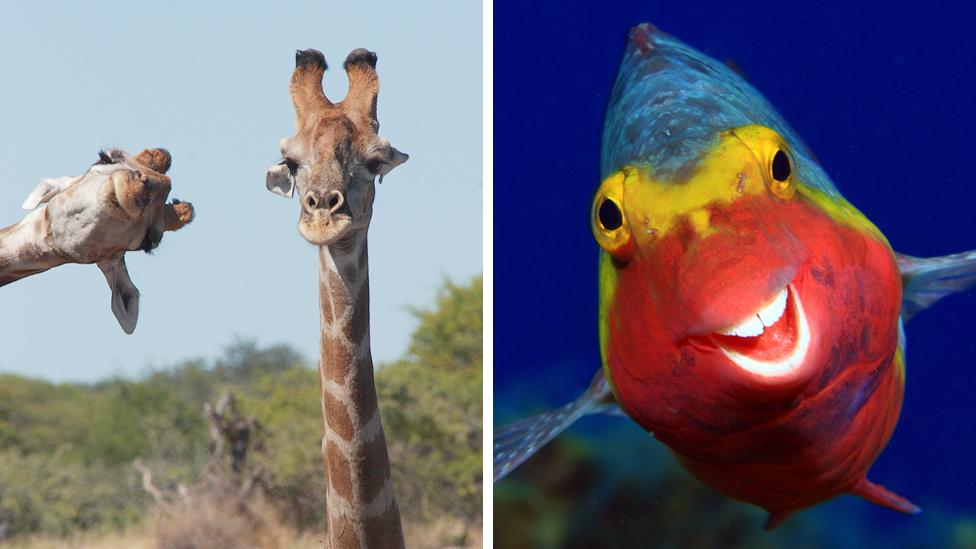
- Published13 August 2020
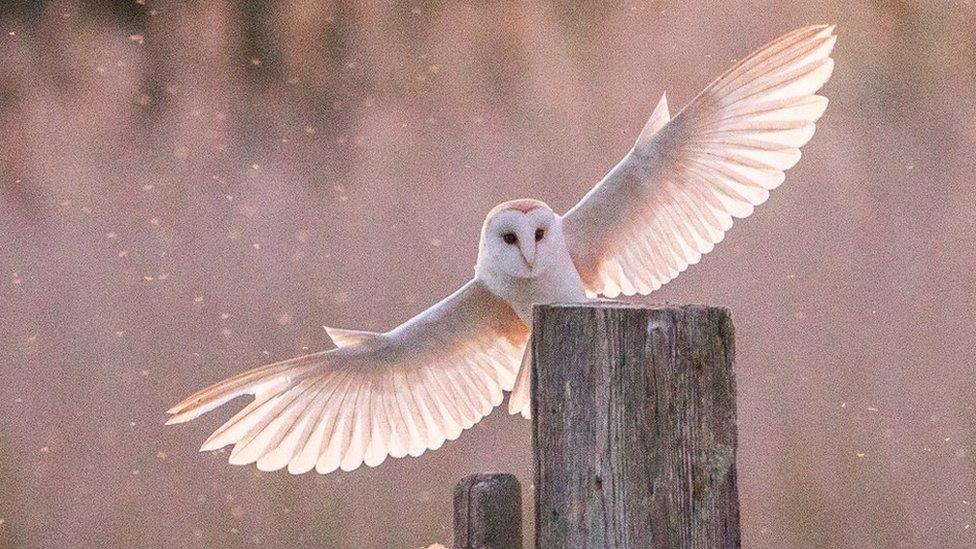
- Published9 June 2020

- Published2 April 2020
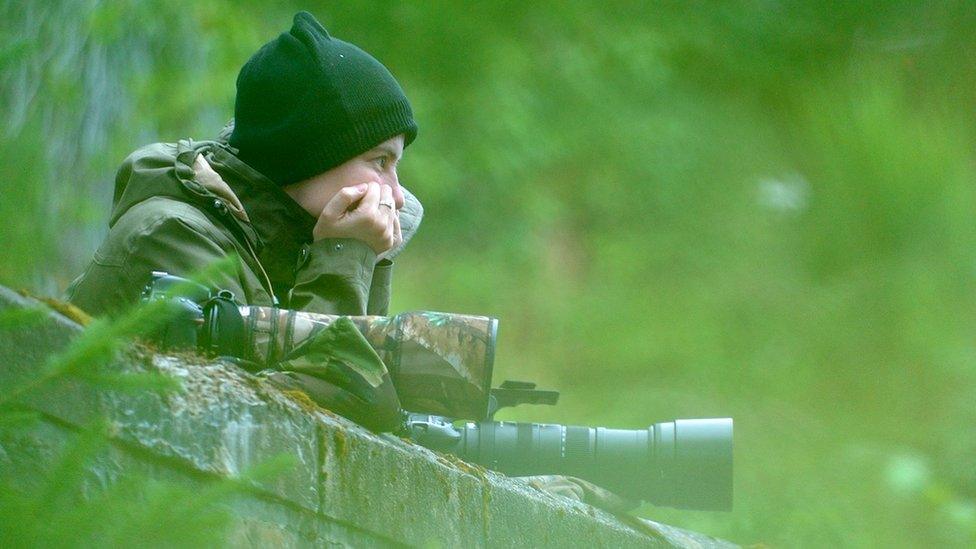
- Published29 March 2020
